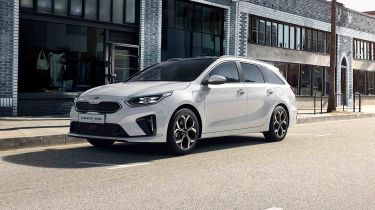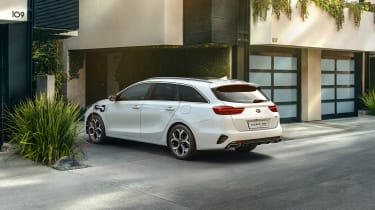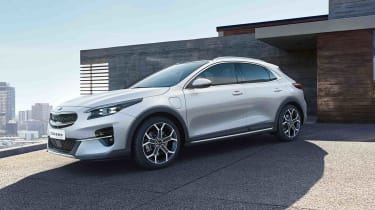2020 Kia XCeed and Ceed Sportswagon plug-in hybrid models now on sale
The Kia Ceed hybrid models can manage over 35 miles of electric range
- • Orders open for XCeed and Ceed Sportswagon PHEVs
- • Kia now offers seven electrified models
- • Prices start at £29,995
Prices and specifications have been revealed for the Kia XCeed SUV and Kia Ceed Sportswagon estate plug-in hybrid (PHEV) models. The Ceed Sportswagon starts at £29,995 while the XCeed is £700 more expensive at £30,695. Both models are available to order from Kia dealerships and first customer deliveries are commencing.
The Kia Ceed Sportswagon PHEV is only offered in the higher ‘3’ trim level, which includes 17-inch alloy wheels, LED headlights, rain-sensing wipers and keyless entry/start. A new 10.25-inch infotainment screen includes sat nav, a reversing camera, DAB radio and Kia’s UVO Connect app.
Best hybrid estate cars to buy now
Opt for the Kia XCeed PHEV and you’ll have a choice of ‘3’ and First Edition trim levels, although the latter will only be offered for a limited time. The ‘3’ trim features 16-inch alloys, privacy glass, two-zone climate control, parking sensors and heated seats, while the First Edition adds plenty more equipment, including a panoramic sunroof, a powered tailgate, auto-parking assistance and extra safety features. Both come with the 10.25-inch screen mentioned above.
The XCeed and Ceed Sportswagon PHEVs use the powertrain already in use in the Kia Niro, Hyundai Ioniq and Hyundai Kona Hybrid. That consists of a 1.6-litre petrol engine, a 8.9kWh battery pack and a 44.5kW electric motor, together producing 139bhp. Zero to 60mph takes around 10.5 seconds in both cars. A six-speed dual-clutch automatic gearbox is standard and should prove more economical and user-friendly than the CVT gearboxes used in most hybrids.
Kia promises up to 36 or 37 miles of electric range in the XCeed and Ceed Sportswagon PHEVs respectively - although the bigger wheels of the XCeed First Edition reduce the range to 33 miles. Using a 3.3kW AC charger, it takes both models two hours and 15 minutes to fully recharge.
The cars feature brake regeneration technology, which replenishes the battery with the energy usually lost when slowing down. As with the Niro, you can also save energy by choosing the ‘driver only’ ventilation setting, which turns off all the fans apart from the driver’s. Kia has also included an artificial engine noise that activates when you’re in the fully electric driving mode, to make pedestrians aware of the car’s presence.
There are a few design changes over the standard models but you’ll be hard-pressed to notice them unless you’re up close. Both cars get a closed grille (aiding airflow) and a charging port on the left front wing. The Ceed Sportswagon also gets ‘eco plug-in’ badges and the bumpers from the sporty-looking GT-Line model.
Besides the driver-only ventilation setting, the interior is almost unchanged apart from some new software. The central touchscreen can show nearby charging points on the sat nav and the level of charge left in the battery, and it can also be used to manage the timing of battery charging if you’re plugged in at home. This is so you can take advantage of off-peak tariffs to charge the car.
You’ll get special displays on the instrument cluster but you can opt for a 12.3-inch ‘Supervision’ digital instrument cluster that replaces dials with a screen. Meanwhile, the touchscreen also allows you to connect two Bluetooth-compatible devices at the same time.
Despite Kia’s attempts to offer similar boot space to the regular Ceed Sportswagon and XCeed, practicality does suffer in the plug-in hybrid models. The Sportswagon PHEV has 437 litres of boot space, rising to 1,506 litres with the rear seats folded, compared to 625 and 1,694 litres in the standard Sportswagon. It’s a similar story with the XCeed, which offers 291 litres of boot space in the hybrid model. Both cars offer dedicated storage space for the charging cable.
Check out our guide to the best hybrid SUVs you can currently buy.
Recommended
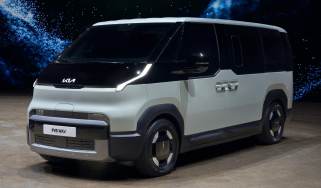
New Kia PV5 Passenger takes on the VW ID.Buzz with seven seats and electric power
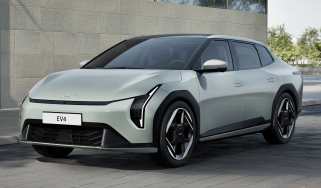
New Kia EV4 offers futuristic family-car looks and 391-mile range
Most Popular

Omoda E5 targets rivals: now with zero deposit and APR

Ford Puma Gen-E driven: Electric charmer or too little, too late?
Tips & advice

Car dashboard warning lights: what does each symbol mean?

Electric car charging stations: public networks, charger types, apps and maps


